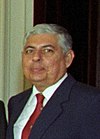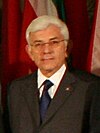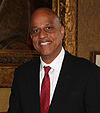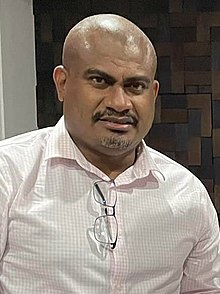This article needs additional citations for verification .(October 2019) |
| Prime Minister of Belize | |
|---|---|
 | |
| Government Cabinet | |
| Style | The Right Honourable |
| Type | Head of government |
| Residence | Left Wing, Sir Edney Cain Building, Belmopan |
| Seat | Belmopan |
| Appointer | Governor-General |
| Term length | 5 years, no term limit |
| Precursor | Premier of Belize |
| Inaugural holder | George Cadle Price |
| Formation | 12 September 1981 |
| Deputy | Cordel Hyde |
| Salary | 91,800 BZD annually [1] |
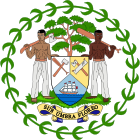 |
|---|
This article lists the prime ministers and deputy prime ministers of Belize, from the establishment of the position of First Minister of British Honduras in 1961 to the present day.
Contents
- Office of the Prime Minister of Belize
- List of officeholders
- First Minister of British Honduras (1961–1964)
- Premier of British Honduras (1964–1973)
- Premier of Belize (1973–1981)
- Prime ministers of Belize (1981–present)
- Timeline
- Deputy Prime Minister of Belize
- List of deputy prime ministers of Belize since (1981–present)
- See also
- References
- External links


